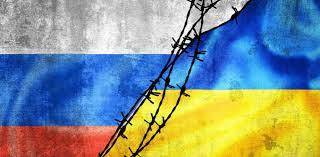
The Russian political agenda has consistently revolved around one central theme: territorial expansion. This unyielding pursuit of geographical growth has not only defined Russia's foreign policy but has also had far-reaching global implications. Today, Ukraine finds itself at the epicenter of this expansionist narrative. In this article, we will critically analyse the nature of Russia's expansionist policy, its global ramifications, and the pivotal role of the ongoing Ukraine crisis.
Russia's inclination towards territorial expansion can be traced back through the annals of history. From the early expansion of Kievan Rus to the centuries under Mongol rule, it's clear that Russia's journey has been a manifestation of its deep-seated desire for dominance. The rise of Moscow symbolized Russia's quest to establish itself as a significant power, seeking to consolidate its identity.
Russia's expansionist fervor continued as it moved further eastward, conquering Siberia, expanding into the Caucasus and Central Asia, and incorporating Eastern European territories. These actions were driven by a combination of materialistic desires, power dynamics, and the imposition of cultural and political values on conquered lands.
Even during the Cold War, when the USSR was a superpower, Russia's expansionist tendencies persisted. Notably, its foray into the Middle Eastern region during this period was driven by the allure of the region's abundant resources. This historical context is crucial for understanding contemporary Russian foreign policy.
Ukraine, in this grand narrative, has played a pivotal role. Historically, it was a cornerstone of the Soviet Union, second in significance only to Russia itself. Home to vital agricultural production, defense industries, and military assets, Ukraine's role was instrumental during the Cold War. The decision to sever ties with the USSR in 1991 proved to be a crippling blow to the superpower.
In the three decades since gaining independence, Ukraine has sought to chart its course as a sovereign state. However, this journey has been fraught with challenges. Deep internal divisions have characterized its attempts to balance foreign relations. Western regions, with a more nationalist, Ukrainian-speaking population, have embraced greater integration with Europe. Meanwhile, the predominantly Russian-speaking eastern regions have favored closer ties with Russia.
The Ukraine crisis, which erupted in 2014 with Russia's annexation of Crimea and support for separatists in the Donbas region, marked a turning point. It was the first time since World War II that a European state had its territory annexed by another. The ensuing conflict claimed more than fourteen thousand lives, making it the bloodiest conflict in Europe since the Balkan Wars of the 1990s. This crisis signaled a shift in the global security environment, transitioning from a period of unipolar U.S. dominance to one defined by renewed competition among great powers.
In February 2022, Russia launched a full-scale invasion of Ukraine with the goal of toppling the government aligned with the West, led by President Volodymyr Zelenskyy. This event further underscored Ukraine's central role in the ongoing struggle between Russia's expansionist ambitions and the aspirations of a sovereign nation.
To fully understand Russia's expansionist policies, one must delve into their psychological underpinnings. The formation of the USSR can be seen as a manifestation of Russia's deep-rooted desire for dominance. Centuries of Mongol rule left an inferiority complex that fueled Russia's territorial ambitions. The rise of Moscow symbolized its quest for significance, with subsequent conquests driven by materialistic desires, power dynamics, and the imposition of cultural values.
Throughout the USSR's existence, centralization and justification policies demonstrated a compulsive need for control and uniformity, driven by a fear of fragmentation. In the post-Cold War era, Russia's persistent expansionist tendencies reflect an ongoing struggle to reconcile past imperial aspirations with contemporary identity challenges.
In the post-Cold War era, Ukraine emerged as a critical player, shaped by historical and geopolitical factors. The collapse of the USSR granted Ukraine the independence it had long sought, marking a powerful moment of individuation. However, Russia's unyielding expansionist tendencies have posed significant challenges to Ukraine's sovereignty.
Amid these geopolitical dynamics, Ukrainian women have faced a troubling narrative, one deeply rooted in both historical and contemporary forces. Forced into prostitution, they endure a form of exploitation deeply entrenched in societal norms and economic desperation. This dark aspect of Ukraine's post-independence journey highlights the intricate interplay between history, geopolitics, and individual experiences.
In conclusion, the nature of the Russian political agenda, characterized by an unrelenting pursuit of territorial expansion, carries profound global implications. Ukraine, at the heart of this geopolitical drama, stands as a testament to the complexities of this enduring struggle.
Understanding the historical foundations of Russian expansionism, the geopolitical significance of Ukraine, and the psychological underpinnings of Russian policy provides valuable insights into the challenges faced by the international community. The Ukraine crisis serves as a stark reminder of the delicate balance between national sovereignty and great-power ambitions, a balance that continues to shape our world today.
With such high stakes, the world watches closely, hoping for a resolution that respects Ukraine's sovereignty and charts a path towards stability in the region.

